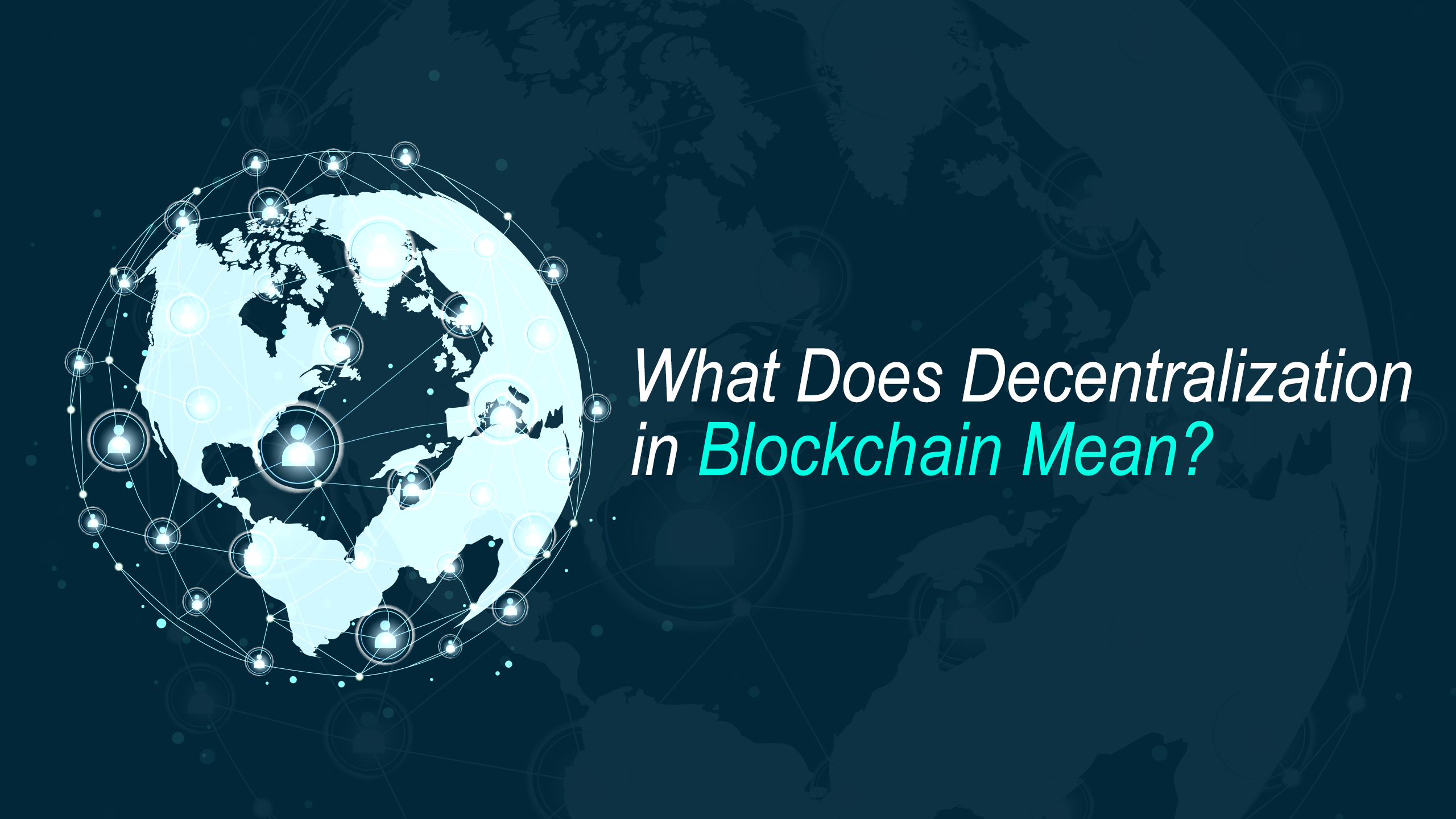The history of technological advancements shows how rapidly technology has advanced since the arrival of the internet. In order to improve user experience, the internet is constantly evolving. In contrast, modern computers and models are still far from being able to process and communicate data with users.
Moreover, big companies control the internet and its digital services. A key part of defining the future of technology is the concept of decentralization in the blockchain. We will discuss decentralization and how it provides significant value benefits in this article. You can also learn about decentralization using a variety of methods.
Why Does Decentralization Matter?
Historically, decentralization has been a concept that has existed for quite some time. A technology solution typically comprises three types of network architecture: centralized, distributed, and decentralized.
A blockchain application itself cannot be classified simply as decentralized or centralized, even though blockchain technologies frequently use decentralized networks. All aspects of a Blockchain Application should be decentralized on a sliding scale. A decentralized approach can provide greater and fairer service by managing and accessing resources in an application. It is true that decentralization can sometimes reduce transaction throughput, but in the long run, these tradeoffs are worth the increased stability and service levels they bring.
How does Decentralization Impact the Economy?
Clearly, decentralization has varying impacts at different levels due to the sliding scale. How can decentralization influence notable areas? Listed below are some specific areas where decentralization has an impact.
Business Components
There are many methods of decentralization in the blockchain, but business decentralization is the most important one. Smart contracts are used to eliminate centralized and single-party processes. Data or assets of a business would no longer be controlled by a central party.
In the world of business, disintermediation refers to direct interactions between two parties. Businesses use blockchain primarily to decentralize their operations and remove middlemen and centralized control, with almost 5% of use cases focusing on this.
Physical Decentralization in Blockchain
By applying decentralization, servers would also be distributed globally, thereby resulting in physical decentralization. It depends on how well hardware supports blockchain and decentralization for their efficiency. Developing a global tech infrastructure that is accessible to everyone and controlled by no one can provide the benefits of decentralization blockchain.
It is therefore only possible to achieve decentralization in main blockchain networks when there are a variety of users running the network’s nodes. The people who verify transactions and maintain security on the network receive equitable rewards through investments in high-end computing hardware.
Decentralization of Transactions
A notable example of decentralization in the blockchain is the decentralisation of transactions, such as cryptocurrencies. Transparency, trust, and efficiency are better achieved through decentralizing B2B transactions. New models of transactions are being created through the use of blockchain technology to reinvent value chains in the global economy.
A shared ledger powered by blockchain can serve as an immutable repository of transactions and is capable of supporting smart contracts. As a further feature, blockchain ensures that transactions are executed, verified, and documented according to the rules of the network by implementing a consensus algorithm. Trusted transaction verification can be achieved through cryptographic consent mechanisms associated with verified identities.
Advantages of Decentralization
Ensures that the Environment is Trustless
It is impossible to trust or know anyone in a decentralized blockchain network. A distributed ledger maintains the same data for each member of the network. Whenever a member’s ledger is corrupted, the majority of network members will reject it.
Enhances Data Reconciliation
Data is often exchanged between companies and their partners. As a result, each party stores this data in its own data silos, only to bring it back upstream when needed. Every time data is transformed, there is a risk of data loss or incorrect data. Data can be accessed in real-time and shared by all entities via a decentralized data store.
Strengthens Weak Points
System weaknesses can be reduced through decentralization by reducing the reliance on specific actors. As a result of these weaknesses, we might see systemic failures, such as inefficient or non-existent services, outages, bottlenecks, insufficient incentives for good service, or corruption.
Distributes Resources Efficiently
In addition to improving performance and consistency, decentralization can also reduce the probability of catastrophic failure by optimizing the distribution of resources.
Closing Words
Blockchain is not the only technology that benefits from decentralization. By using blockchain, users can become more aware of the need for decentralization, and they will understand its benefits. Answering the question “What does decentralization in blockchain mean?” goes beyond its distributed nature.
In addition to bringing power back to users, decentralization can lay the foundations for web3. The significance of decentralization becomes more relevant than ever as blockchain solutions are making a huge impact in a number of sectors. Decentralization is supported by blockchain technology. Find out more about it.
Are You Looking To Develop A Decentralized Blockchain App?




